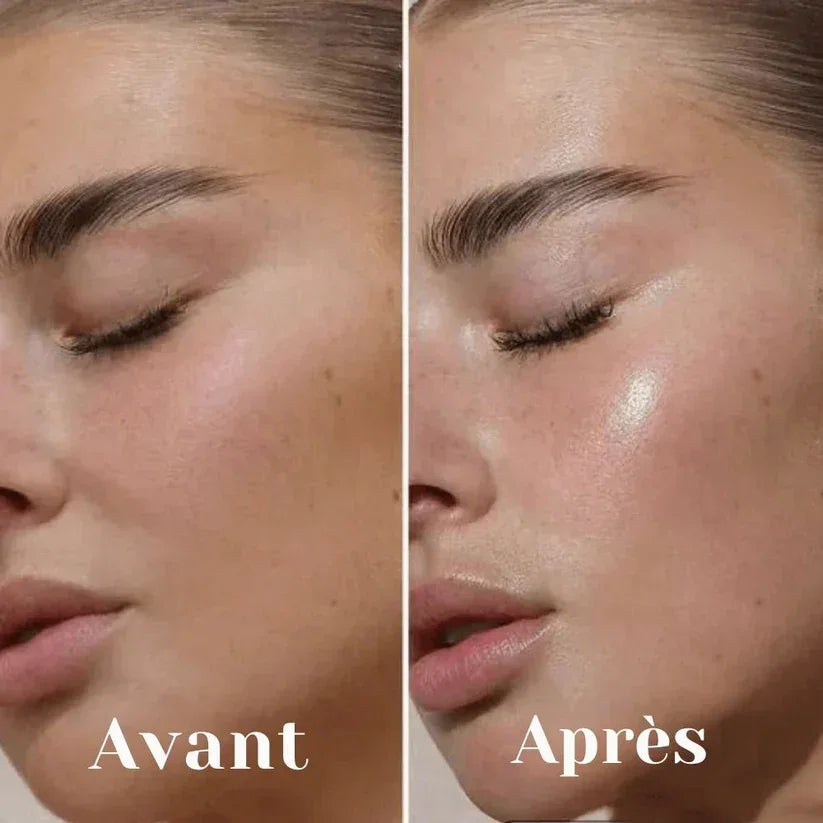
Comparison: Korean Skincare vs. Western Skincare: Which is Better?
Share
Have you ever noticed how Korean skincare routines differ from Western ones? K-beauty has taken the world by storm with its innovations and unique approaches, but how does it compare to Western methods? Let's dive into the differences and similarities between these two skincare cultures.
Section 1: Skin Care Philosophy
Korean Skincare (K-beauty) :
- Approach K-beauty emphasizes prevention and hydration. Korean routines often consist of several steps to treat different aspects of the skin. The idea is to maintain healthy and radiant skin over the long term.
- Ingredients Korean products often use natural and innovative ingredients like snail slime extract, green tea, and hyaluronic acid. These ingredients are chosen for their moisturizing and soothing properties.
Western Care :
- Approach Western skincare often focuses on treating existing skin problems. Routines are generally simpler and use multifunctional products. The emphasis is on fast, visible results.
- Ingredients : Western products frequently use synthetic and technologically advanced ingredients like retinoids and alpha hydroxy acids (AHAs). These ingredients are effective in treating specific problems like wrinkles and pigmentation spots.
Section 2: Skincare Routine
Korean Skincare (K-beauty) :
- Steps A typical Korean skincare routine includes up to 10 steps: oil cleansing, water cleansing, toner, essence, serum, ampoule, sheet mask, eye cream, moisturizer, and sunscreen. Each step has a specific role in skincare.
-
Popular Products :
- Cleanser: SKIN1004 Madagascar Centella Ampoule Foam
- Tonic : Beauty of Joseon Glow Replenishing Rice Milk
- Essence : ANUA Niacinamide 10% + TXA 4%
- Serum : RETURNED
- Fabric mask : MEDICUBE Collagen mask
Western Care :
- Steps : A typical Western routine usually consists of 3 to 4 steps: cleansing, toning, serum, and moisturizer. This routine is more simplified and quick to follow.
-
Popular Products :
- Cleaner : CeraVe Hydrating Facial Cleanser
- Tonic : Thayers Witch Hazel Toner
- Serum : Estée Lauder Advanced Night Repair
- Moisturizer : La Roche-Posay Toleriane Double Repair Face Moisturizer
Section 3: Innovations and Trends
Korean Skincare (K-beauty) :
- Innovations K-beauty is known for innovations like sheet masks, serum ampoules, and essences. These products are designed to provide intense hydration and targeted care.
- Trends Current trends include "glass skin" (smooth, luminous skin) and "cloudless skin" (blemish-free skin). These trends emphasize naturally beautiful and healthy skin.
Western Care :
- Innovations : Western skincare is distinguished by technological advances such as home care devices (microneedling devices, LEDs) and cutting-edge ingredients (peptides, acids).
- Trends : Current trends include "clean beauty" (natural, non-toxic products) and sustainability (recyclable packaging and ethical ingredients).
Section 4: Advantages and Disadvantages
Korean Skincare (K-beauty) :
- Benefits : Intense hydration, prevention of signs of aging, and the use of natural ingredients. Korean routines are designed to maintain healthy and radiant skin over the long term.
- Disadvantages : The routine may be longer. Korean products may also be less accessible in some regions.
Western Care :
- Benefits : Simpler and faster routine, products often more accessible.
- Disadvantages : Less focus on prevention, sometimes more aggressive for the skin. Products may contain synthetic ingredients that are not suitable for all skin types.
Conclusion
In short, Korean and Western skincare each have their own philosophies and approaches. K-beauty distinguishes itself by its emphasis on prevention and hydration, while Western skincare focuses on fast results and targeted treatments. By incorporating products from both cultures into your routine, you can get the best of both worlds.
Feel free to share your experiences and ask questions in the comments. We'd love to hear your thoughts on Korean and Western skincare!
Team Coree Beauty.




